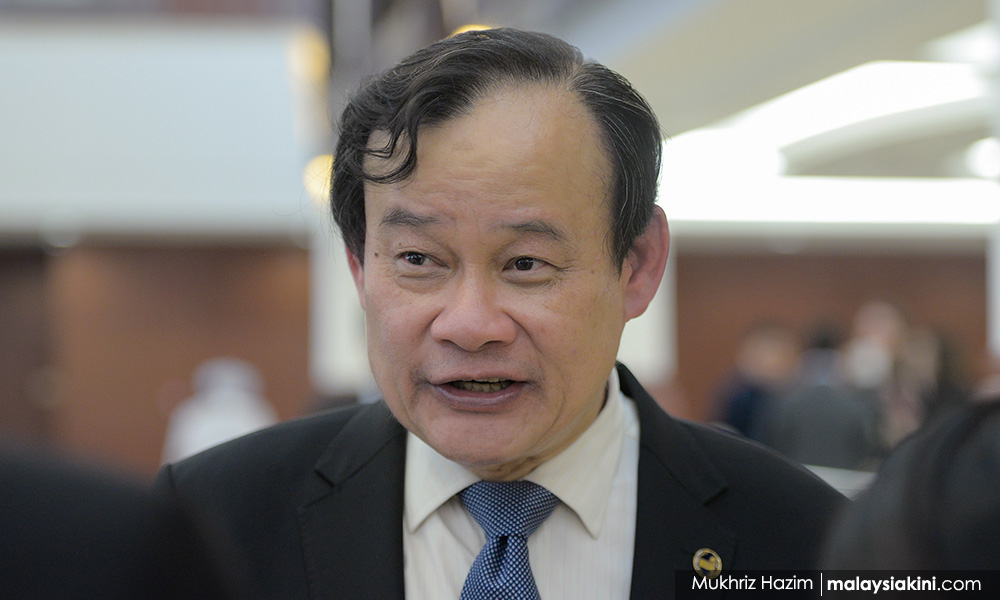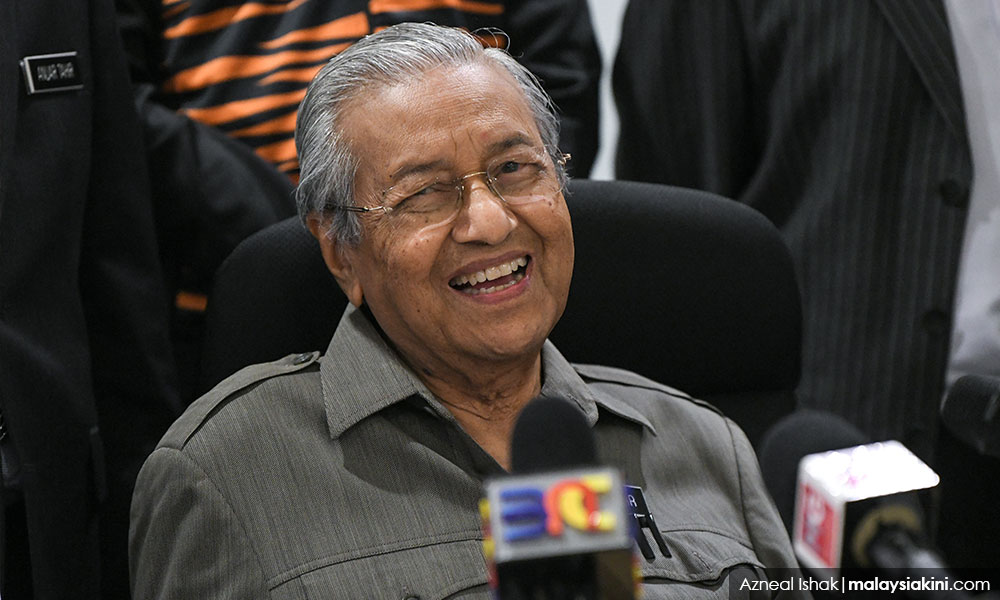
The Parliamentary Select Committee (PSC) on Major Appointments only has the "moral force" but not "legal power" to check and balance the prime minister's power of making appointments, committee member Ngeh Koo Ham said.
"For now, the select committee can only recommend and highlight the good or bad of any candidate, but the prime minister is still the one who proposes to the Yang di-Pertuan Agong," Ngeh (photo above) said when approached in the Parliament yesterday.
"If the prime minister wants to go against our findings, we will publish our findings, and public opinion will be shaped. That will have a political impact and most executives will bear this in mind," he added.
This is in response to de facto Law Minister Liew Vui Keong's statement that the appointment of the National Anti-Financial Crime Centre director-general need not go through the PSC.
Pakatan Harapan had pledged in its manifesto to curtail the power of the Office of the Prime Minister by shifting his prerogative to appoint the heads of public agencies, to parliament.
However, the government yesterday tabled a bill to set up a National Anti-Financial Crime Centre (NFCC), which will be parked under the Prime Minister’s Department, to coordinate operations and centralise information relating to financial crimes among government entities.
Right to summon and question
Ngeh explained that the Parliamentary Select Committee, which is parked under the Parliament, is a parallel force to check and balance the executive powers.
Although the PSC has no right to refuse any appointment, it can summon anyone to be examined, including Prime Minister Dr Mahathir Mohamad, ministers or governmental agencies.
"For now, our role is to have a moral force to shape public opinion. The Parliamentary Select Committee has the right to summon anyone to attend and to be answerable to us, including the prime minister, ministers or any other agency."

On July 18, Mahathir (above) promised that key appointments to the public service, including the chairperson and members of the Election Commission, Judicial Appointments Commission and Human Rights Commission (Suhakam) as well as the chief commissioner of the Malaysian Anti-Corruption Commission (MACC), would need to pass through the PSC.
Even so, Ngeh said, most of the major appointments are still appointed, by the Yang di-Pertuan Agong on the advice of the prime minister, on three-year contracts, unless the existing laws are amended.
"At this moment, there is no legal compulsion. If the laws are subsequently amended, that would be different.
"Ideally, the PM should refer the name to us before the appointment, so that we can check the person’s background and come out with our own findings. That would be ideal," he said.
Ngeh added that ideally, the government should refer all major appointments to the PSC three to six months in advance.
NFCC exists before the bill is approved
It is worth noting that the NFCC has existed 10 months before the NFCC bill was tabled in the Parliament for its first reading yesterday, and it is now headed by former Immigration Department director-general Mustafar Ali.
Last December, Mustafar revealed that he received his transfer letter on Dec 31, under the orders of the Prime Minister and he confirmed that he had been appointed as the NFCC’s chief executive.
In response to this, Liew explained that the current NFCC is a "nucleus team" and at present placed administratively under the National Governance, Integrity and Anti-Corruption Centre (GIACC).
"Once the NFCC bill is passed, it will become a statutory body on its own," Liew said when contacted by Malaysiakini.
"The director-general will be appointed by the Agong on the advice of the prime minister," added Liew when asked if Mustafar would continue to helm NFCC after the bill is passed.
Malaysiakini has contacted Mustafar for his comment. - Mkini



No comments:
Post a Comment
Note: Only a member of this blog may post a comment.